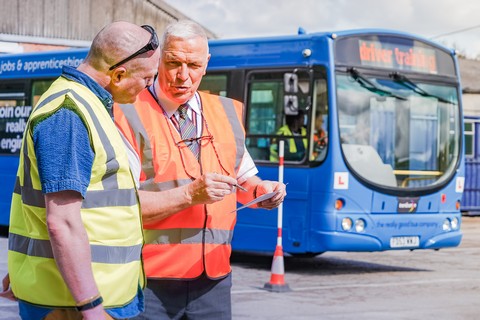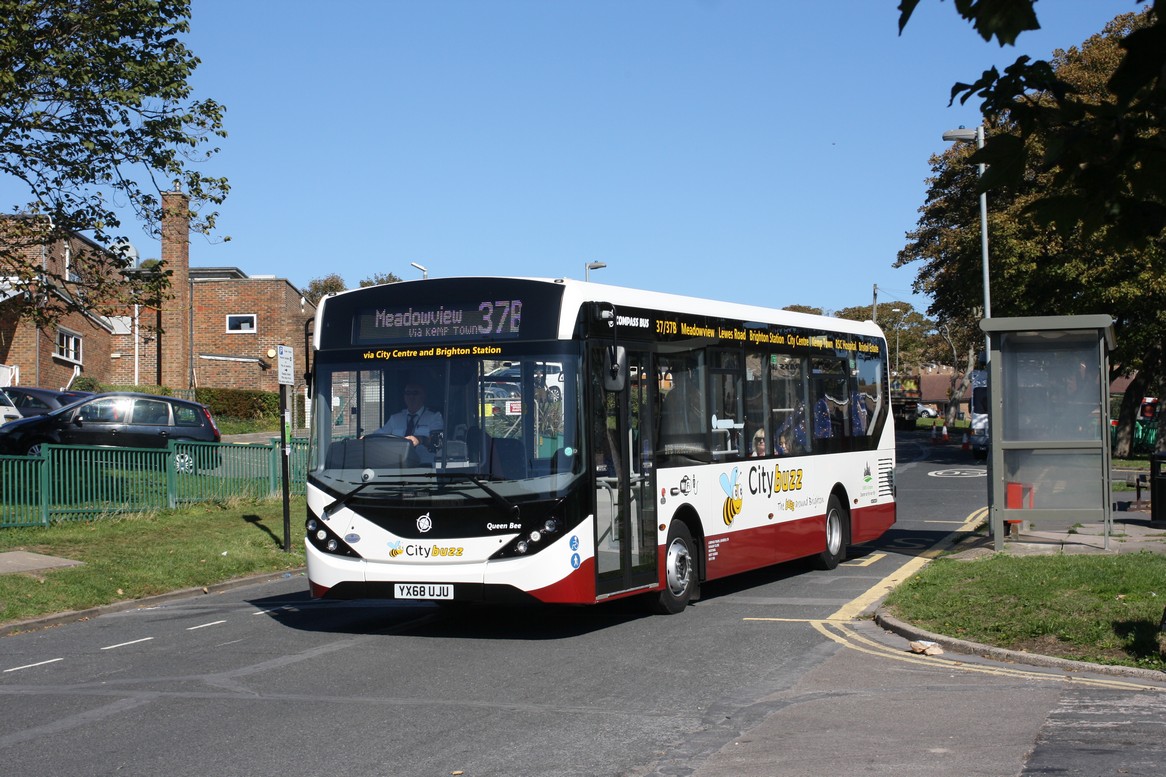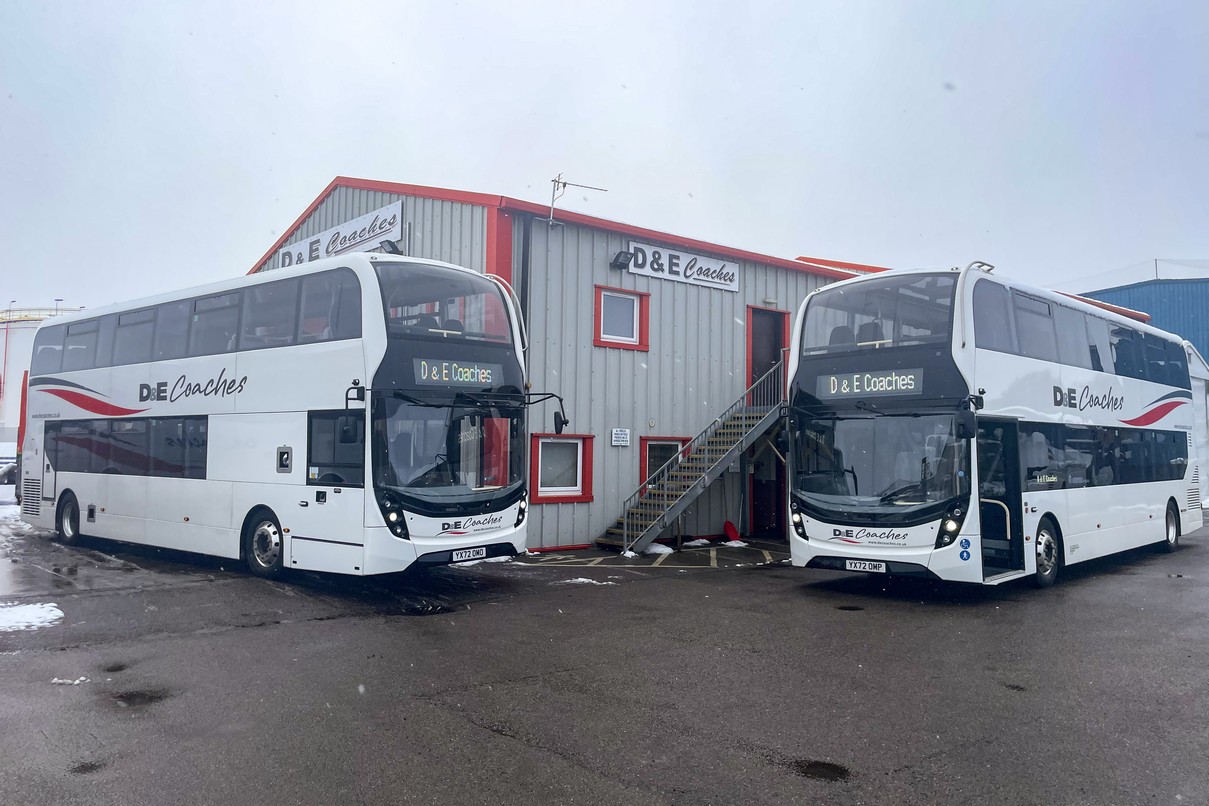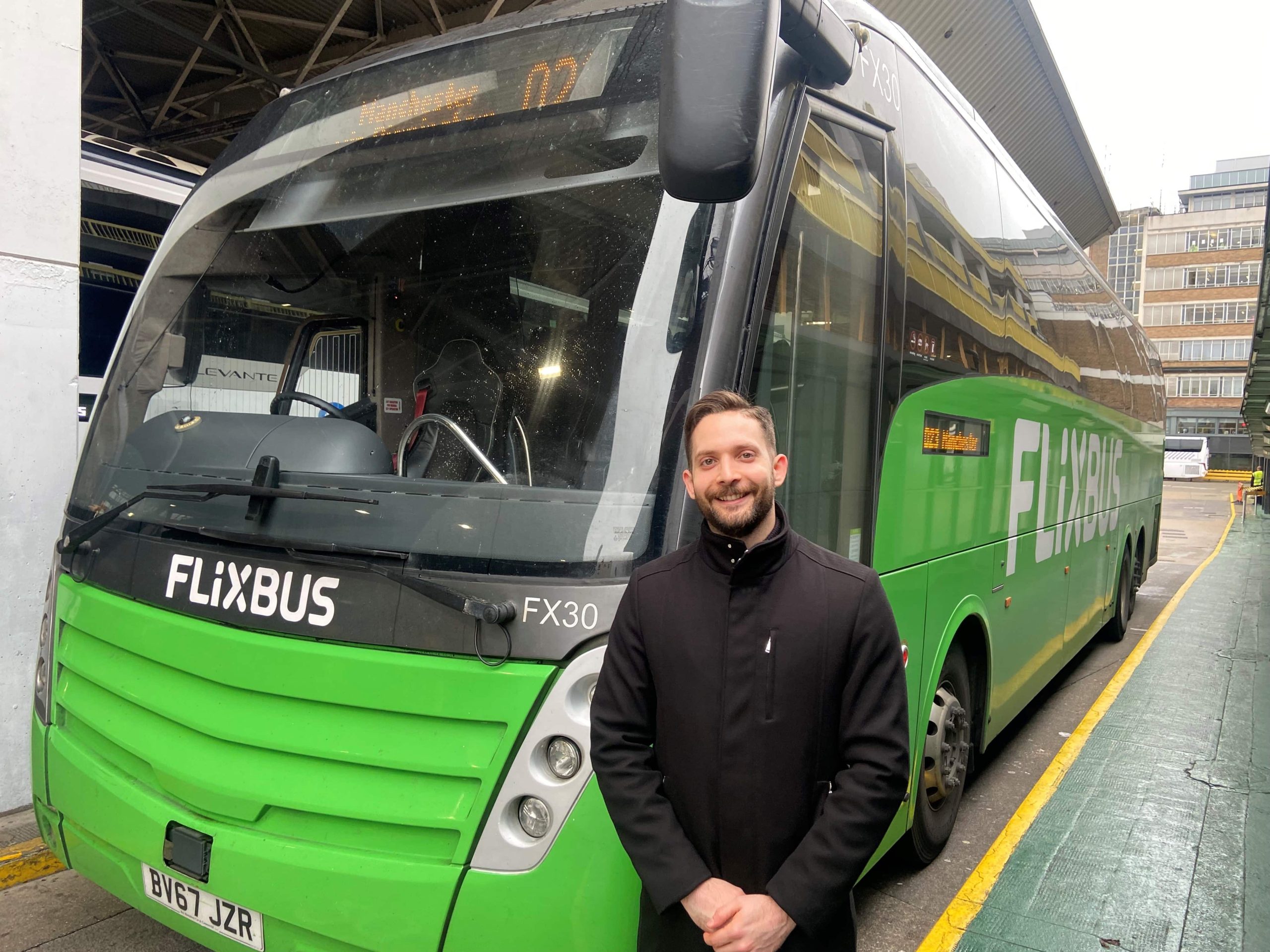As operators move to a more flexible approach as they strive to attract and keep drivers, having ‘part-time’ on the recruitment menu seems a sensible move. We ask three operators for their views
Trentbarton has long been known as a bus operator that looks after its staff.
An important element of that is the way the company tries to accommodate drivers’ requests for the type and hours of work they want to do. That flexibility, although costing the business more, and adding to the administrative workload, is delivering benefits.
Add in to that the role played by the operator’s small team of part-time and casual staff and it does seem that Trentbarton has found a model that is helping it to steer a course through some generally choppy waters.

Managing Director Jeff Counsell, who steps down from the post at the end of February, explains how Trentbarton brings together full-time, part-time and casual staff.
“We have around 780 driving staff across five locations and 40 routes,” he says. “The vast majority of our drivers are engaged within rosters that are route specific. It’s a scheme that we started in 1994, helping to ensure drivers become known to their passengers, and vice versa.
“Driver recruitment has certainly become more difficult over the last two years. But early on we took the decision to maintain the route-specific approach. That requires more drivers; a figure in the region of 5% compared to traditional industry scheduling. For the most part we give drivers the opportunity to pick the rota lines that suit them best. But looking at, say, our main Rainbow One route out of Nottingham, that means we may have five open rota lines not covered. We will use part-time staff to cover some of these gaps.
“Part-time drivers are often looking for work at weekends and evenings, often doing two or three days a week. It’s an arrangement that suits their lifestyle and suits us. It’s good to note that our full-time drivers are pleased that the part-timers pick up the slack. There’s a good relationship between them all.”

Driver discount scheme
Worthing-based Compass Travel operates a fleet of around 80, predominantly buses, across East Sussex and West Sussex.
“We have 164 full-time drivers and just seven contracted part-time,” explains General Manager Michael Bishop, “so we’re not in the same position as some other operators. There’s always been a place on the rotas for them. Overall we’re currently around 8% short of drivers. That’s manageable and we’re keeping our head, but we’re still finding it hard to recruit, so we’re pro-actively searching.
“We’re using someone from outside the business to look through CVs and identify anyone who might be interested. For our own staff we’re looking at ways to ensure they stay with us. We’ve developed a discount scheme offering savings at local shops. We’re using another outside supplier for that so there’s a cost. But we feel we need to do what we can, not only to attract new drivers but also to keep the ones we have.
“You can’t just sit back, and we recognise the need to be flexible. We’ve adapted our rotas to try and give drivers what they want. If someone wants to be part-time, we’ll look at it. At the heart of all of this is ensuring we run the advertised timetables. Clearly it’s bad for the business if we don’t.”

Part-time versus casual
In the Midlands, TrentBarton has a small number of casual drivers.
“Before the pandemic we were covering everything so didn’t need them,” says Jeff Counsell. “But since we’ve been going through this industry shortfall we’re welcoming them back again. Part-time drivers are on contract and we agree their hours, but casual drivers are those we can call in if needed, or who might call us to see if we have any work. At a time when we’re looking for capable drivers, our casual drivers offer a flexibility that we can combine with the certainty of our full-time and part-time teams. One of our casual drivers is a mechanic during the week, but then drives for us every Saturday. It’s a situation that suits both parties.
“Today, across the business, we’re probably around 50 drivers short. In pre-pandemic times that wouldn’t have worried us. We’d have covered the gaps with overtime. But since the pandemic there seems to be less of a willingness to do so much overtime. We’ve significantly increased our pay rates over the last 18 months. That hurts the business, but we’ve had to do it to attract new drivers, and it helps keep the ones we have.”

Disappearing drivers
In the north of Scotland, Inverness-based D&E Coaches is in a relatively good position.
“We operate around 60 vehicles,” says Managing Director Donald Mathieson. “Our part-time drivers are a key part of what we do. They tend to either do a school run in the morning and afternoon, but don’t want private hire work, or vice versa. We also use our part-time staff to cover rail replacement work.
“We have our own training vehicle and qualified instructor. We’ve put a few new drivers through, and trained up some of our cleaners. In this area, the rate of pay, even the opportunity to drive our brand new Enviro400s, isn’t attracting applicants in the way you might think it would. Before the pandemic we had many older drivers. But after the pandemic some of them just disappeared. My understanding is that they’d become used to sitting at home.
“Would we take on any more part-time drivers? If that’s what a driver wanted then we would consider it. But in the meantime we’re trying hard to keep the people we already have. We’re a family company. We all get along. Our door in the office is always open so drivers, whether full-time or part-time, know they can pop in for a chat. It seems to be working.”

Sharpening the training process
Trentbarton currently has 73 applicants going through its training process. 23 are waiting to be interviewed, 14 are in the driver training school, 19 are waiting for their medicals and 17 are waiting for licences.
“We’ve sharpened up our training process and engaged an external training provider to provide additional support above our own resources,” says Jeff. “He gets the drivers their licence and then we provide the customer service training and instil the company ethos. It’s working very well.”
Jeff comments that attracting and keeping staff in the past would probably have meant keeping an eye on what other local operators were doing.
“To be fair, we seldom see staff leaving us to go to Arriva or, indeed, transfer the other way” he says. “CT4N, which is based in Nottingham, has taken a few due to the fact it has little or no work late in the evening or on Sundays, but in turn we’ve picked up a few recently from Nottingham City Transport. But our biggest competitor was the haulage industry. We lost a few drivers who thought driving an HGV or a van was for them and who were attracted by the headline higher rates of pay. But that’s all slowed down now, with some coming back to us having found the grass really wasn’t greener and the pay was for wheel-turning time only.”
A concern for Jeff is what the impact on the business will be when the current round of the government’s Bus Recovery Grant funding ends on 31 March.
“There’s a possibility it could result in further service revisions,” he says. “That would impact on the number of staff we need. But for now, the training continues.”
In Sussex, Michael Bishop acknowledges that the industry has largely been based on getting drivers to do overtime to fill any gaps caused by a shortage of drivers.
“The situation was prompted by a mix of factors, but I feel it may have plateaued,” he says. “But we’re examining all possibilities to attract new staff, while making sure we keep the ones we have. When someone applies to us to be a driver we ask them they can do, and what they want. We then look to see how we can help. If that means a driver joins us in a part-time capacity, then I’m very comfortable with that. As I say, it’s important that we run the advertised services. It’s all about flexibility.”

























